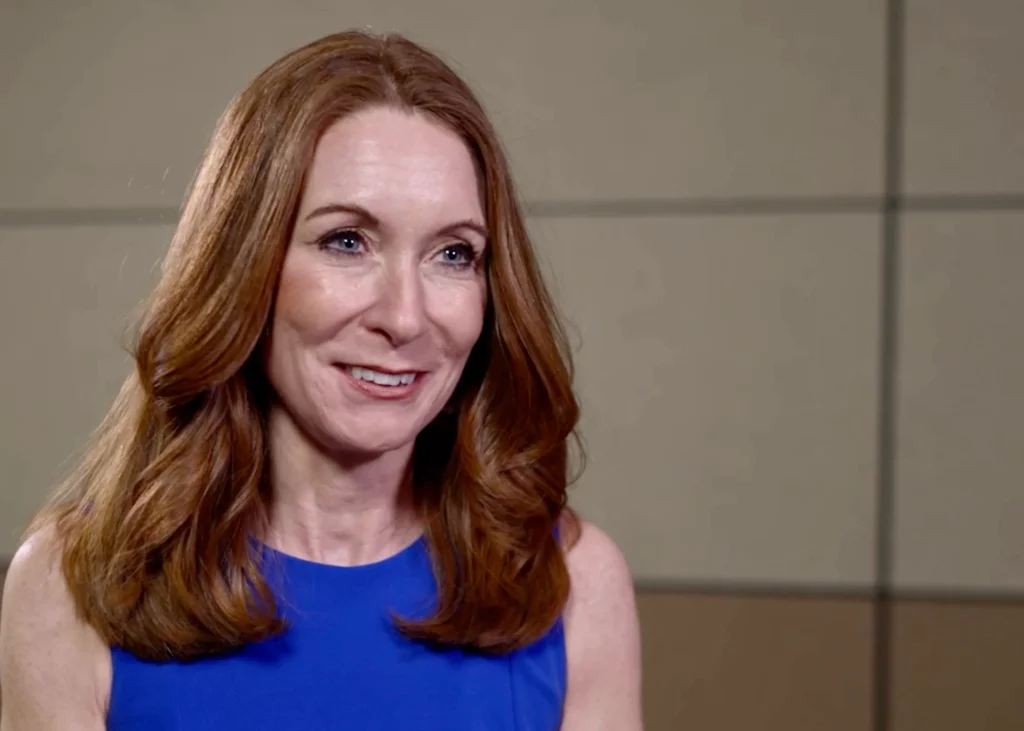older adulthood
Sustaining health, building continuity
Autistic adults and their caregivers enter their later years with a special set of circumstances. Assuring good, long-term care and smooth transitions are difficult to even think about, much less plan for.

Later life planning creates opportunities and challenges for autistic adults and caregivers
A smooth transition of care care is essential for older adults and the next generation of caregivers.
We’ve assembled some good advice to make it easier for everyone.
Planning for transitions of care
Getting advice and strengthening connections to the next generation of caregivers, inside or outside the family unit.
Everyone Needs a Health Care Proxy
It’s important to have a health care proxy at any time of life.
Medicare for Older Adults
People approaching age 65 need to prepare for insurance changes.

Manageable moments
Some common that often affect older adults

Sleep Problems
Sleep problems are common in autistic people. As many as 50-80% experience some kind of sleep difficulty as compared to 25-30% of neurotypical people.
Sleep problems are common in autistic people. As many as 50-80% experience some kind of sleep difficulty as compared to 25-30% of neurotypical people. Sleep issues vary widely and include:
Difficulty falling asleep
Interrupted sleep
Early waking
Needing very little sleep
When sleep problems arise in the adult years, there could be a variety of explanations, including environmental factors, changes in family or living arrangements, transitions to new day programs or employment, or environmental factors such a seasonal allergies or other air quality issues. Sleep problems can also be caused or exacerbated by underlying medical conditions such as:
Sleep apnea
GERD or acid reflux
Constipation
Seizures
Erupting wisdom teeth
Restless legs syndrome
Psychological factors and emotional distress can also contribute to sleep problems. Anxiety, depression, stress, or trauma are just a few of the factors that can create or exacerbate sleep problems. Some types of medications, such as stimulants, beta blockers, corticosteroids, and decongestants can also affect the quality and duration of nighttime sleep.
Lifestyle changes can help
Six simple things to do to improve sleep:
Increase the amount of exercise during the day, such as walking and swimming
Minimize alcohol and caffeine intake
Limit screen use at night when possible
If heartburn or acid reflux are suspected, prop up the head of the bed or use extra pillows to avoid laying completely flat on the bed
Keep the bedroom cool and as dark as possible
Consider a weighted blanket to help calm nerves and give calming sensory input
Seeking care
When simple interventions don’t help, make an appointment with a PCP. A wearable device such as a smart watch or using a phone app that tracks sleep quality and waking patterns can provide useful feedback. Based on symptoms, history, and assessment, a referral to a neurologist or mental health clinician may be recommended. If symptoms include snoring or disrupted breathing, a sleep study to rule out sleep apnea or narcolepsy can often be done at home. If an overnight sleep study is required, there are accommodations than can make these studies less stressful. The Vanderbilt Kennedy Center has a guide for helping children with sleep study protocol that is also useful for adults.
Resources for sleep issues
Learn more about sleep and autism, and the impact of sleep patterns on other conditions common in older adults:
Spectrum News discusses the latest sleep research in Cracking Sleep’s Conundrum
Harvard Health Publishing on Sleep Problems and Risk of Stroke
Harvard Health Publishing on sleep problems and the increased risk of cardiovascular disease
Healthy Sleep Tips from the Harvard Division of Sleep Medicine
Sleep Strategies for Teens with Autism Spectrum Disorder from the Vanderbilt Kennedy Center and Autism Speaks
Weighted blankets can promote better sleep.

Anxiety & Depression
Anxiety and depression are common in autism but may appear different from neurotypical adults.
Anxiety and depression are common among autistic adults, but may look different
About 70% of autistic people suffer from some form of anxiety, which can occur at any age. Anxiety disorders can include generalized anxiety disorder, panic disorder, social anxiety disorder, and phobia-related disorders. Autistic people are four times more likely to experience depression during their lifetime than the general population. Signs and symptoms of anxiety and depression in both neurotypical and autistic patients include:
Anxiety
Feeling nervous, restless or tense
Having a sense of impending danger, panic or doom
Having an increased heart rate (tachycardia)
Breathing rapidly (hyperventilation)
Sweating
Trembling
Feeling weak or tired
Trouble concentrating or thinking about anything other than the present worry
Having trouble sleeping
Experiencing gastrointestinal (GI) problems
Having difficulty controlling worry
Having the urge to avoid things that trigger anxiety
Depression
Feelings of sadness, tearfulness, emptiness or hopelessness
Angry outbursts, irritability or frustration, even over small matters
Loss of interest or pleasure in most or all normal activities, such as sex, hobbies or sports
Sleep disturbances, including insomnia or sleeping too much
Tiredness and lack of energy, so even small tasks take extra effort
Reduced appetite and weight loss or increased cravings for food and weight gain
Anxiety, agitation or restlessness
While anxiety in autistic individuals is frequently heightened by change, especially changes in routine or anticipation of new situations or expectations, the symptoms often present differently than in neurotypical patients. Sometimes anxiety that is expressed through behavior changes in autistic adults is attributed to other factors or grouped with “typical” autistic symptoms. Anxiety in patients with more severe language and cognitive impairments can be even harder to distinguish.
Some of the common manifestations of anxiety in autistic adults can include:
Social awkwardness and reluctance to engage in relationships or group activities
Perseverating on small worries, often manifested by repetitive questioning
Increases in stereotypy or repetitive behaviors (stimming)
Excessive adherence to rituals or routines
Negative thoughts, especially in children and young adults
Skin and/or nail picking
Pacing, escaping or running away
Meltdowns or tantrums
Depression can present in some more typical ways, such as excessive sleeping, loss of interest in preferred activities, and poor attention to self-care.
Autistic adults and caregivers should be aware of signs and symptoms of anxiety and depression and report them to their PCP and/or mental health provider. Because behaviors that appear to be anxiety-related can also be symptoms of various medical conditions it’s important to be proactive so that both the source of the anxiety and its underlying cause can be identified, whenever possible.
Drs. Chris McDougle and Robyn Thom are psychiatrists who specialize in treating autistic patients. They offer advice on recognizing depression in autistic adolescents in a Harvard Health article, “How can you support your teenager with autism spectrum disorder if they are depressed?”, and the suggestions they offer can also be applied to adults.
Therapeutic Treatment for anxiety and depression
Self-advocates and autistic people who feel comfortable sharing their feelings can benefit from talk therapy. It’s important to consider the best strategy for understanding and treating anxiety or depression according to the needs of the autistic person. Some approaches to treating anxiety and depression include cognitive behavioral therapy (CBT), mindfulness therapy, dialectic behavioral therapy (DBT), and neurofeedback.
Medication Treatment for anxiety and depression
Medication and autism is a complex topic. Prescription, over the counter, and complementary medications don’t always work for all patients and side effects can affect long-term health. Clinicians who treat autistic patients often find that medications and dosages that work well for neurotypical patients are less effective for those with autism. It’s important to discuss medication strategies with the PCP or any prescribing clinician to ensure that any psychotropic medications are tailored specifically to the unique needs of the autistic patient.
For example, Selective Serotonin Reuptake Inhibitors (SSRIs) are often used as a first line medication for anxiety in neurotypical patients. However, some experts in the autism field caution against their use in autistic patients, especially children and adolescents. Buspirone and mirtazapine in very small doses to start have been shown to help anxiety, with slow and steady dosing up to a typical amount.
Harvard Medical School’s free Clinician Course for medical providers, Clinical Care for Autistic Adults, provides clear and extensive advice to medical providers about best practices for treating autistic adults, including specific guidelines for medication.
Another useful resource is the Parent’s Medication Guide from the American Psychiatric Association
Suicide risk
Any language or behavior that presents a risk of serious self-harm or suicide should be reported immediately to a mental health professional or PCP. They can offer instructions about the best way to access emergency mental health services to get immediate attention.
The Suicide Hotline can be reached by calling or texting 988 from any phone. They have resources specifically designed to meet the needs of neurodiverse and autistic people:
Warning signs of suicide for autistic people
Crisis supports for the autistic community
Spark for Autism explores the risk of suicide in autistic people.
Finding Treatment for anxiety and depression
ECHO Autism has a directory for finding clinicians trained in best practices for treating autistic children and adults.
Psychology Today has an excellent directory for finding therapists, many of whom provide autism-competent care.
The AASPIRE Toolkit is a good resource that can help patients find an adult provider who understands autism-competent care.
Pennsylvania’s Autism Services, Education, Resources and Training Collaborative (ASERT) has a resource, “Be Well, Think Well”, with tools that self-advocates and caregivers can use to help with anxiety.
The National Alliance on Mental Illness (NAMI) offers help finding mental health providers and offers links to support groups.
The Substance Abuse and Mental Health Services Administration offers 24-hour referral and support.
SAMHSA’s National Helpline800-662-HELP (4357) TTY: 800-487-4889

Gastroesophageal Reflux Disease (GERD) and Acid Reflux
Gastrointestinal problems occur two to three times more often in autistic people than in the general population.
Gastroesophageal Reflux Disease (GERD) is common in both autistic children and adults, and can affect appetite, sleep, and behavior.
Reflux is the backward flow of acid from the stomach into the esophagus. GERD is when the closure of the lower esophagus becomes weak from recurring acid reflux. Symptoms include heartburn, regurgitation, chest pain, dry cough, shortness of breath, or trouble swallowing. Persistent GERD can lead to more serious health conditions like esophagitis.
Dr. Timothy Buie, a pediatric gastroenterologist at Boston Children’s Hospital whose research and practice focuses largely on autistic patients with digestive issues, notes that non-verbal autistic people sometimes exhibit behaviors that indicate GERD, reflux, or other digestive issues. In this video, Dr. Buie explains some of the behaviors that may indicate digestive upset:
Dr. Tim Buie, Gastroenterologist at Boston Children’s Hospital, on signs of gastrointestinal distress in autistic adults
If frequent heartburn or reflux is suspected it should be brought to the attention of a PCP. They may recommend over the counter remedies such as antacids, famotidine, or omeprazole. Regardless, any condition that persists should be referred to a gastroenterologist for proper assessment, diagnosis and treatment.
Autistic adults requiring treatment for GERD may need to have an endoscopy, which is a process in which a gastroenterologist examines the digestive tract by inserting a tube with a tiny light and a camera down the throat. Because medical procedures of this kind can be particularly stressful for autistic people, patients and caregivers should discuss accommodations for making the procedure as tolerable as possible with the gastroenterologist and hospital staff. [link to accommodations article]
Dietary and Lifestyle changes to help ease reflux/GERD
Diet can contribute to the occurrence of increase stomach acid. To reduce the occurrence and uncomfortable symptoms of reflux/GERD, autistic adults will want to limit certain foods, including:
mint
orange/grapefruit juice
tomatoes
onions
chocolate
fried/spicy foods
carbonated drinks
Foods and ingredients that can help:
banana
rice
oatmeal
melon
ginger
salmon
sweet potatoes
carrots
beets
Lifestyle changes to consider:
avoid eating near bedtime
drink plenty of water
eat several small meals instead of three large ones
placing a bolster under a mattress or using extra pillows to keep the head raised, which lessens the chance of acid rising to irritate the esophagus during sleep
For autistic adults in day programs or who live in residential placements, communication about dietary health can assist in managing GI conditions. Our Dietary Plan Tool is one way of helping caregivers and staff understand and contribute to positive health across the lifespan.
A tool for tracking bowel movements when abdominal pain is a problem

Migraine Headaches
Migraine headaches are more common among autistic adults than the general population.
There many kinds of headaches, and migraine headaches are much more common among autistic adults (42%) than the general population (10%). As with the general population, females are three times more likely than males to experience migraines, so autistic females are especially prone to these types of headaches.
As noted in our article on pain, it can be difficult for nonverbal adults to communicate when they have a headache and what types of symptoms they are experiencing. Some signs of migraine in autistic adults can include:
changes in eating habits
nausea or vomiting
sudden need to be in a dark space (photophobia)
sudden need to be in a quiet space (phonophobia)
repeated touching or banging of the head
eye movement or problems that indicate aura (tunnel vision, blind or color spots)
Treatment for headaches can vary depending on the kind of headache and any other medications or supplements currently prescribed. Always consult with all prescribing clinicians when considering prescription migraine medication or nutritional supplements.
The American Migraine Foundation has advice for managing migraines, including:
Eat small, balanced meals at regular intervals and avoid getting too hungry
Keep a regular sleep and exercise schedule
Limit intake of processed or fried foods, chocolate, artificial sweeteners and foods with nitrates and nitrites (check the labels on bacon, hot dogs, and other cured meats)
Avoid or limit caffeine and alcohol (especially red wine and beer)
Keep a food diary to identify foods that might trigger migraines
Harvard Health Publishing also offers specific advice on managing headaches:
5 Migraine Questions Answered
When headaches won’t go away
Older women and migraine with aura
Which migraine medications are most helpful?
the long view
Dr. James Bath on the importance of preventive health screenings
Autistic adults are less likely to seek regular preventive care. Dr. Bath offers advice to patients and clinicians alike.

transitions
Autism and Grief
Autistic people often have unique approaches to the milestones in life. There are many ways to help them prepare for and process loss.
Good advice
Lived Experience: self care for caregivers
Communicating with providers about the needs of the whole family isn't always easy, but it's necessary.
Parent to two autistic adults, Maura Sullivan shares her experience.
We'd like your feedback
AAHR is a new resource, launched in September 2023. We welcome comments and suggestions on both the design and content of the site. Thank you!


